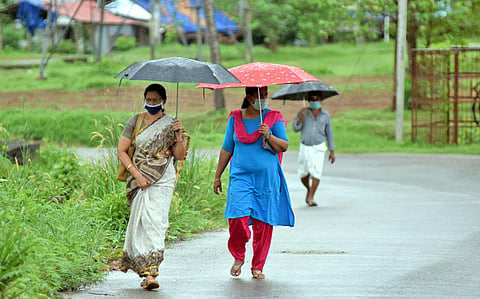

KOCHI: Can testing sewage reveal the extent of COVID-19 spread in a community? Yes, it can, going by the method adopted by health experts in some countries.
Apart from sentinel surveillance, sero-surveillance and random testing experts say conducting Covid-19 tests on sewage samples to check for the viral load can tell about the occurrence of community spread in a particular locality.
Sewage surveillance was earlier conducted in India to check for the presence of poliovirus in the community. In COVID-19, though it is caused by a respiratory virus, after lungs, the highest concentration of the virus is found in the gastrointestinal (GI) tract. By studying the sewage samples, which contain human waste, it is possible to know the viral load and by correlating the viral load in the sewage and the cases in the community, one can identify the spread of the virus in a particular locality.
The recent study conducted in Paris by testing the sewage samples showed that they could correlate the virus load in the water and the community and track the extent of spread in the community.
"Sewage samples are normally tested for enteric viruses like polio that get transmitted through water contaminated with faecal matter. But the studies carried out in other parts of the world have revealed that COVID-19 presence can also be seen in the sewage water. Therefore, rather than using thousands of testing kits for keeping track of the community spread in the state, testing the sewage samples of a particular community will be helpful and this way we will be saving a lot of testing kits as well," said Dr Anup R Warrier, Infectious Disease Expert.
Since asymptomatic cases remain a concern for the state, sewage surveillance could be one method of identifying community spread, Anup added.
However, many health experts are of the opinion that sewage testing is only required when you doubt whether the virus is present in the community or not.
ALSO SEE | An angel falls battling Covid-19 in Delhi
"Sewage surveillance is done for a particular reason. Let's say we have eliminated polio, and we would like to know if there is any trace of the virus anywhere in the community. Because the poliovirus is present in the gut, testing septage water can reveal its presence. As for COVID-19, we already know that virus is there in the community. Sewage checking is not relevant here," said Dr Rajeev Sadanandan, a member of the government's COVID special committee.
"Community transmission is when you cannot trace the contacts. As long as the number of cases is not too large, it is not a problem, and sentinel surveillance must be continued in the state. But if the numbers go up, the probability of missing cases is much larger and the threat level will also go up," said Dr Rajeev.
Meanwhile, there are also apprehensions that if the COVID-19 virus load is present in sewage water, sanitation workers or anyone coming into contact with the water can cause a community spread.
"The sewage tests conducted in many parts of the country, including Chennai, showed the presence of the virus. In our cities, sanitation workers and others are involved in dealing with sewage and hence are directly exposed to the virus," said Rashid K, co-founder of Genrobotics, which specialises in sewage cleaning robots.
ALSO SEE: